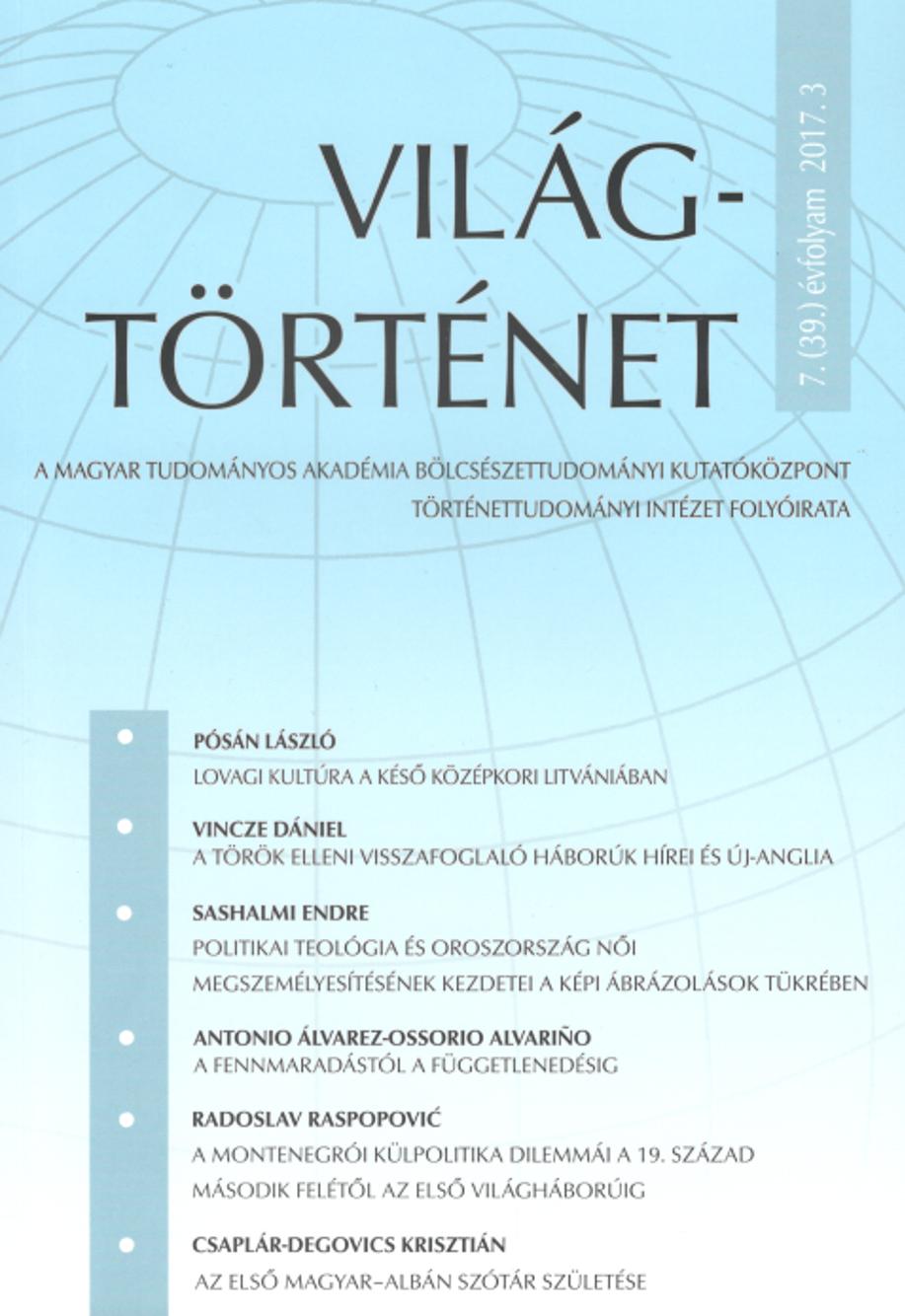A montenegrói külpolitika dilemmái a 19. század második felétől az első világháborúig
Dilemmas in Montenegrin Foreign Policy from the Second Half of the 19th Century to the World War I
Author(s): Radoslav RaspopovićSubject(s): 19th Century, Pre-WW I & WW I (1900 -1919)
Published by: Magyar Tudományos Akadémia Bölcsészettudományi Kutatóközpont Történettudományi Intézet
Summary/Abstract: This paper discusses the foreign policy of Montenegro from the second half of the 19th century to the beginning of the World War I, as well as the changes in its definition and practical realization. The analysis was carried out by taking into account foreign policy priorities in the separate stages during this period, as well as by considering the change in the choice of the country’s main foreign partners among the great forces. The proclamation of the Montenegro for the principality in 1852 is the beginning chronological point of this paper, not only because of the change in the form of the government in Montenegro, but also because, after the introduction of secular power in the country, a period followed by the crisis in the political relations with Russia began. This crisis was significantly less dramatic and less common in the earlier relations between these two countries, as well as between 1878 and 1903. By gaining sovereign status in 1878, Montenegro changed its foreign policy actions in order to align its own goals and instruments of actions with political interests of the main political subjects in the international community. Analysis of the foreign policy of Montenegro has showed inaccuracy of the widespread opinion that the Russia had the absolute influence on the foreign policy of Montenegro from the second half of the 19th century to the beginning of the World War I. In addition to France and Austria– Hungary, especially after 1903, Italy was also very active in the international life of Montenegro. Author concludes that with the start of the Balkan wars, and especially World War I, Montenegro, not only lost Russian influence, which was very strong in certain periods, but also significantly narrowed the list of possible foreign partners between other great forces, and after 1916 the Russian influence was lost.
Journal: Világtörténet
- Issue Year: 2017
- Issue No: 3
- Page Range: 443-466
- Page Count: 24
- Language: Hungarian

